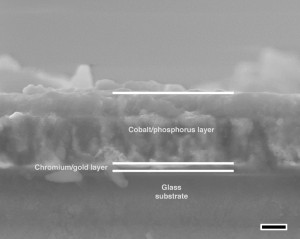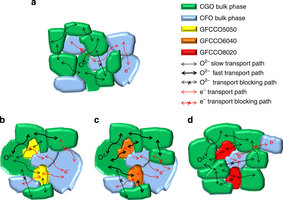What better day than Earth Day to highlight the work of ECS member Luke Haverhals, an assistant professor at Bradley University working in novel types of energy storage and conversion through the utilization of renewable, sustainable substrates such as hemp, wood, and silk.
Haverhals is a former student of current ECS 3rd Vice-President Johna Leddy. Since departing from Leddy and the University of Iowa, Haverhals has worked in an area focused on wielding natural fibers using ionic liquids (i.e. enhanced energy conversion devices).
Ionic liquids have been gaining much notoriety lately, with potential game changing electrolytes for energy conversion devices ranging from batteries to fuel cells.
Make sure to join Haverhals and other scientists pioneering world-changing research by joining ECS today and attending our upcoming scientific meeting!






